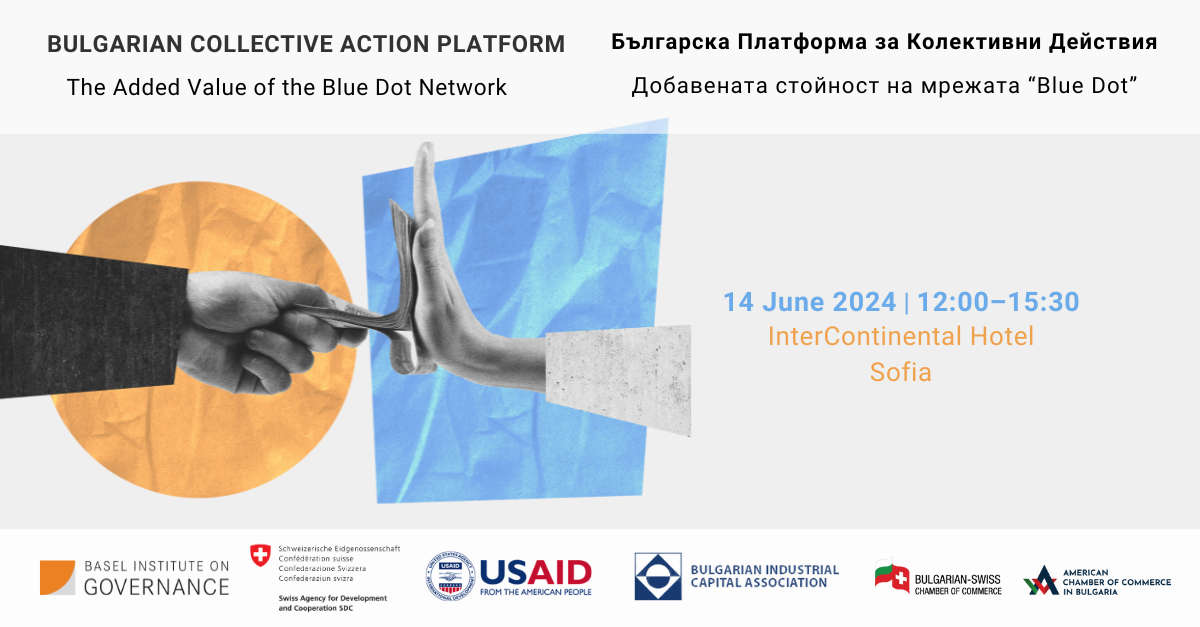Gemma Aiolfi led the Basel Institute’s Compliance and Collective Action work for many years, working closely with our late Managing Director Gretta Fenner as well as our former President Mark Pieth to transform private-sector engagement in the fight against corruption.
Congratulations to the winners of the 2024 Anti-Corruption Collective Action Awards, presented by the Basel Institute on Governance with the support of the Siemens Integrity Initiative.
Public procurement is a notorious risk area for corruption and other unfair business practices all over the world – including in Bulgaria, where diverse stakeholders are now coming together to find a practical solution to corruption risks in public tenders that works for all parties.
One solution they are discussing is a High-Level Reporting Mechanism. In essence, this is a channel to raise and quickly resolve alerts about suspected bribery or unfair business practices in public tenders.
How can companies contribute to a corruption-free business environment in order to create an innovative level playing field for sustainable and successful business?
Public voting has opened for this year’s prestigious Collective Action Awards.
Launched in 2022, the Collective Action Awards celebrate inspiring and outstanding multi-stakeholder initiatives to raise standards of business integrity in a particular context. Two award categories are available: “Outstanding Achievement” and “Inspirational Newcomer”.
Paris is known as the city of love. But once a year, during the OECD Global Anti-Corruption Forum (GACIF), it also becomes the beating heart of integrity – at least for the anti-corruption community.
Under the theme “Designing our future with integrity”, this year’s Forum brought together anti-corruption experts from business, government and civil society from around the world to explore trends in the fight for integrity and against corruption.
Collective Action in an Era of Crises
This report reflects on the International Corruption Hunters Alliance (ICHA) 2023 Forum. The World Bank Group’s fifth edition of the International Corruption Hunters Alliance convened more than 350 participants from over 80 countries, on June 14–16, 2023, in Abidjan, Côte d’Ivoire, that involved direct exchanges between practitioners to learn from one another and build stronger links in support of anti-corruption Collective Action efforts, particularly with and among West and Central African countries.
This Resource Guide provides States with a framework for identifying and implementing an appropriate mix of sanctions and incentives for encouraging business integrity. It reflects the latest developments in the global anti-corruption landscape and contains case studies that serve to share information and practices and provide inspiration to States and the private sector.
Investing With Integrity II: How Corruption Undermines Environmental And Social Outcomes
This is a guide for impact investors on how corruption can undermine environmental and social outcomes, and about how coordinating due diligence across business integrity and environmental and social workstreams can help identify these links. This guidance puts business integrity at the heart of impact investing.

